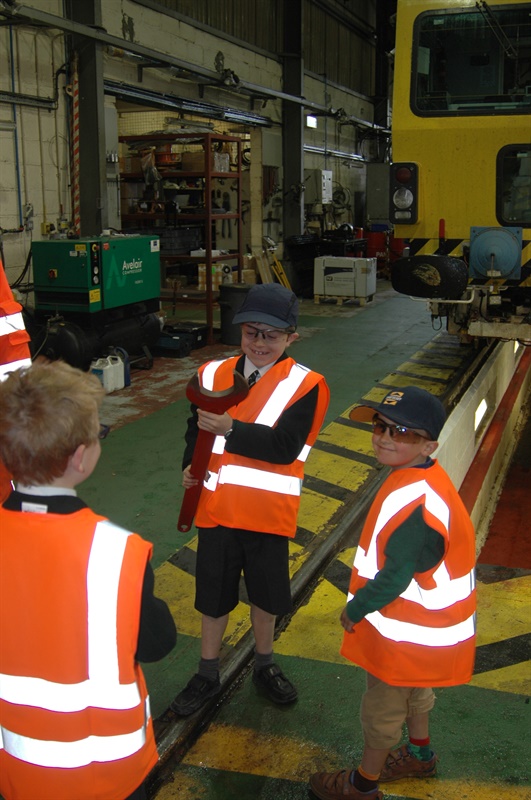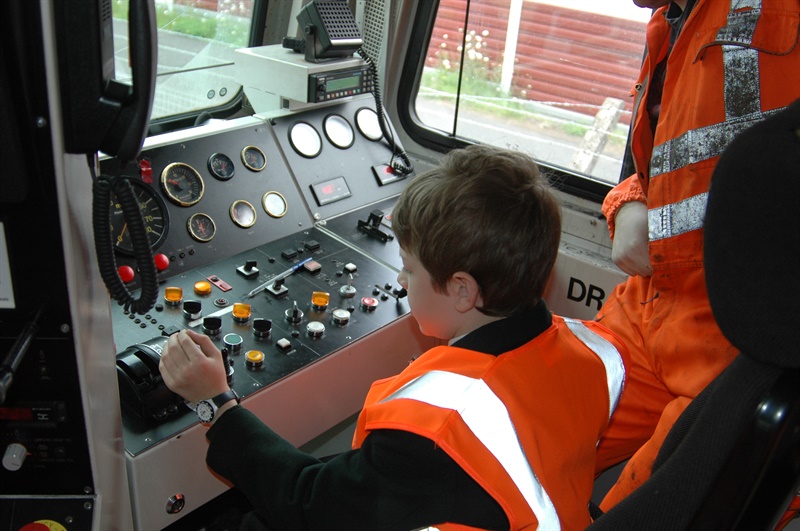01.11.14
Changing the face of engineering education in schools
Source: Rail Technology Magazine Oct/Nov 2014
Susan Scurlock, CEO of Primary Engineer, a not-for-profit organisation established in 2005 to encourage young people to consider careers in STEM-related professions, says the organisation will work with 22,000 children this year.
‘When I grow-up I want to be a train driver!’ How many children aspire to that today? How many children even know the opportunities a career in rail can provide, and of those that do, how many are girls?
In primary schools, girls don’t 'know' they can’t be engineers – and that is where our education begins. Not in secondary schools, where our minds are made up, or perhaps where our minds are made up for us due to a lack of skills and engagement with maths and science.

Engaging with engineering at an early age gives learning a context: the often-asked questions ‘when will I need it?’ and ‘where will I use it?’ find quick answers in the classroom when you are building and testing designs you have made in solution to problems you have been given or perceived. When the national curriculum makes little reference to engineering, and teachers are limited in their knowledge of career paths and opportunities in the sector, how do you create a sea change in the aspirations of a generation?
Primary Engineer began in 2005 as a response to a government question: ‘How can we get more engineers?’
The answer seemed so simple: train teachers to deliver practical maths and science through technology. Give them the tools to be enthusiastic and the children the experience of designing and making. Adopt a ‘STEM-by-Stealth’ approach where children don’t realise the skills and knowledge they are applying until they are identified. This year alone we will work with over 22,000 children, 1,010 teachers and 970 engineers.
As the programme has grown it has adapted. Today we invite engineers on teacher training days to sit alongside teachers they are to support in the classroom. Celebration events bring together schools from across regions. With the support of Skills Development Scotland, teachers will be able to take the programme to a Master’s level qualification.
Our expectation of engineers is to be the ‘wow’ factor, the context for learning, the link to local industry and a wider link to engineering in its broadest sense. Over the years the programme has developed arms and legs, creating a Leaders Award where children and students interview engineers about their work, motivation and career paths.

Secondary Engineer was initiated to build on the primary experience in the first year of secondary school and earlier this year at the House of Lords we launched the Institution of Primary Engineers and the Institution of Secondary Engineers, with the support of the IMechE, The Royal Commission for the Exhibition of 1851, Strathclyde University, Babcock international and Weir Group, plus 135 guests from industry and the professional engineering institutions.
These engineering institutions will change the face of engineering education in schools. Children and students can earn letters after their name, they can measure their engagement with STEM against competencies that have been tracked into the school curriculum from the UK-SPEC (the UK Standard for Professional Engineering Competence) for engineering chartership. Members will be required to engage with engineers annually and with different engineering themes. Schools will be able to map, track and evaluate their provision of opportunities against the competencies.
Members who demonstrate the competencies will become Chartered Primary Engineers and Chartered Secondary Engineers.
The Institutions require engineers to be at the heart with links to their industries. A recent example was Swietelsky, which provided engineers and access to sites that not only left a lasting impression on the next generation of rail engineers, but their teachers and (later the same day) parents. Planting seeds early and consistently nurturing them will ensure that if you can’t drive the train you can design it, build it, maintain it and engineer the infrastructure for it to run on.
Tell us what you think – have your say below or email [email protected]